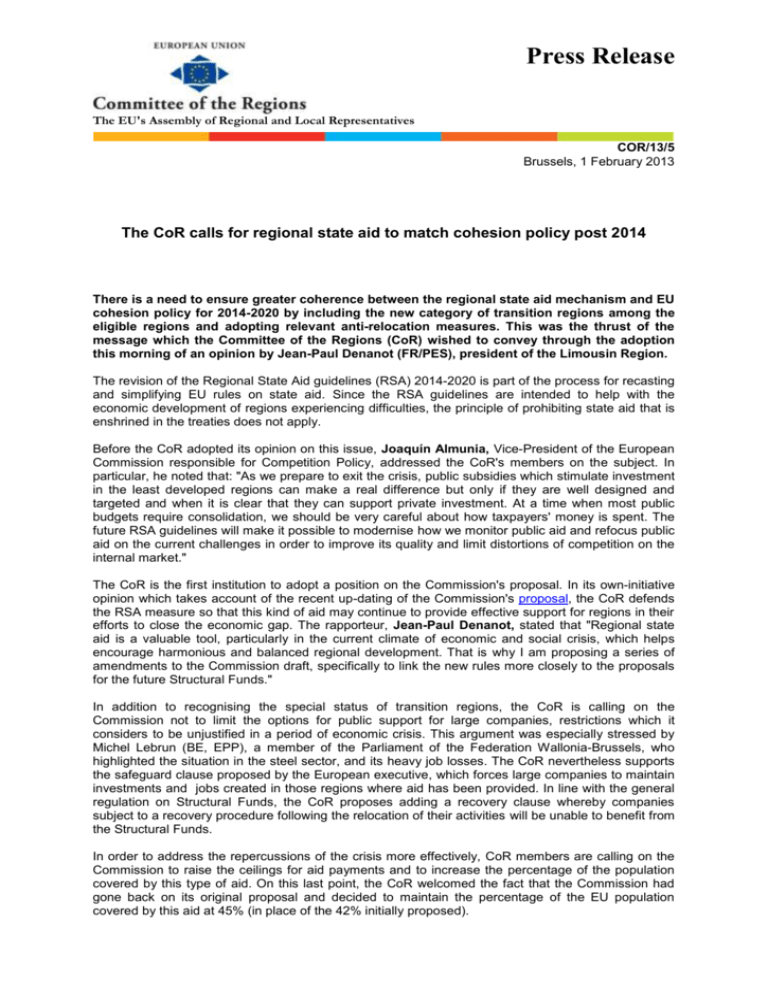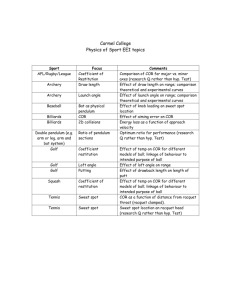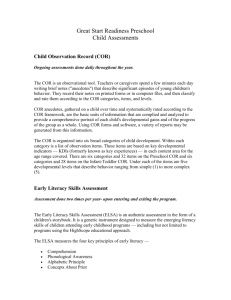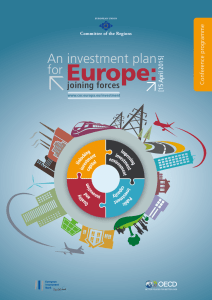CP5 - plenary - regional aid guidelines
advertisement

Press Release The EU's Assembly of Regional and Local Representatives COR/13/5 Brussels, 1 February 2013 The CoR calls for regional state aid to match cohesion policy post 2014 There is a need to ensure greater coherence between the regional state aid mechanism and EU cohesion policy for 2014-2020 by including the new category of transition regions among the eligible regions and adopting relevant anti-relocation measures. This was the thrust of the message which the Committee of the Regions (CoR) wished to convey through the adoption this morning of an opinion by Jean-Paul Denanot (FR/PES), president of the Limousin Region. The revision of the Regional State Aid guidelines (RSA) 2014-2020 is part of the process for recasting and simplifying EU rules on state aid. Since the RSA guidelines are intended to help with the economic development of regions experiencing difficulties, the principle of prohibiting state aid that is enshrined in the treaties does not apply. Before the CoR adopted its opinion on this issue, Joaquín Almunia, Vice-President of the European Commission responsible for Competition Policy, addressed the CoR's members on the subject. In particular, he noted that: "As we prepare to exit the crisis, public subsidies which stimulate investment in the least developed regions can make a real difference but only if they are well designed and targeted and when it is clear that they can support private investment. At a time when most public budgets require consolidation, we should be very careful about how taxpayers' money is spent. The future RSA guidelines will make it possible to modernise how we monitor public aid and refocus public aid on the current challenges in order to improve its quality and limit distortions of competition on the internal market." The CoR is the first institution to adopt a position on the Commission's proposal. In its own-initiative opinion which takes account of the recent up-dating of the Commission's proposal, the CoR defends the RSA measure so that this kind of aid may continue to provide effective support for regions in their efforts to close the economic gap. The rapporteur, Jean-Paul Denanot, stated that "Regional state aid is a valuable tool, particularly in the current climate of economic and social crisis, which helps encourage harmonious and balanced regional development. That is why I am proposing a series of amendments to the Commission draft, specifically to link the new rules more closely to the proposals for the future Structural Funds." In addition to recognising the special status of transition regions, the CoR is calling on the Commission not to limit the options for public support for large companies, restrictions which it considers to be unjustified in a period of economic crisis. This argument was especially stressed by Michel Lebrun (BE, EPP), a member of the Parliament of the Federation Wallonia-Brussels, who highlighted the situation in the steel sector, and its heavy job losses. The CoR nevertheless supports the safeguard clause proposed by the European executive, which forces large companies to maintain investments and jobs created in those regions where aid has been provided. In line with the general regulation on Structural Funds, the CoR proposes adding a recovery clause whereby companies subject to a recovery procedure following the relocation of their activities will be unable to benefit from the Structural Funds. In order to address the repercussions of the crisis more effectively, CoR members are calling on the Commission to raise the ceilings for aid payments and to increase the percentage of the population covered by this type of aid. On this last point, the CoR welcomed the fact that the Commission had gone back on its original proposal and decided to maintain the percentage of the EU population covered by this aid at 45% (in place of the 42% initially proposed). The CoR's core demands also include raising the de minimis thresholds (i.e. the threshold below which state aid is deemed to be compatible with the internal market) from EUR 200 000 to EUR 500 000, maintaining the special status given to the outermost regions and introducing special treatment for regions with natural, geographic or socio-demographic handicaps. The Commission launched a public consultation (available only in English) on 14 January to prepare for the revision of the RSA guidelines for 2014-2020. This consultation will enable cities and regions to be involved in the revision process so that the new mechanism will be better geared to regional needs. The new regulation is scheduled to be adopted in May 2013. Additional information Committee of the Regions draft opinion The Regional State Aid Guidelines for 2014-2020 (consolidated version available within the next few days) Photos of the 99th CoR plenary session The Committee of the Regions The Committee of the Regions is the EU's assembly of regional and local representatives. The mission of its 344 members from all 27 EU Member States is to involve regional and local authorities and the communities they represent in the EU's decision-making process and to inform them about EU policies. The European Commission, the European Parliament and the Council are obliged to consult the Committee in policy areas affecting regions and cities. It can appeal to the EU Court of Justice if its rights are infringed or it believes that an EU law infringes the subsidiarity principle or fails to respect regional or local powers. Visit the CoR's website: www.cor.europa.eu Follow us on Twitter: @EU_CoR For more information, please contact: Nathalie Vandelle Tel. +32 2 282 24 99 nathalie.vandelle@cor.europa.eu Previous press releases









